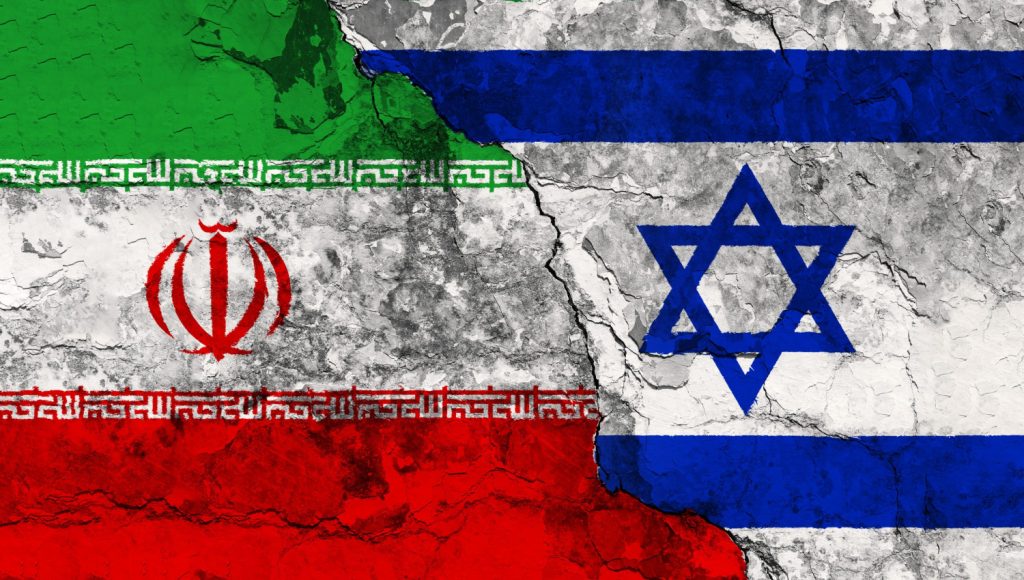IN THE MEDIA
Nuclear menace underscores Iran’s attacks on Israel
May 15, 2023 | Colin Rubenstein

An edited version of this article appeared in The Australian – 15 May 2023
Flying under the radar in a world largely distracted by the war in Ukraine and economic worries, Iran and its proxies have recently greatly escalated Middle East tensions by launching a growing number of coordinated attacks against Israeli territory.
This is a pattern highlighted again this week when Palestinian Islamic Jihad (PIJ), an Iranian proxy in Gaza listed as a terror organisation in Australia, the US and elsewhere, launched hundreds of rockets at Israel.
Contrary to many news reports, Israel’s elimination of three top PIJ leaders in Gaza was not the spark that provoked these attacks, but was actually Jerusalem’s latest calculated move to try to prevent and deter a repeat of the numerous rocket barrages Israel had absorbed over the past month from PIJ, as well as other attacks. The most senior figure killed, Khalil Bahitini, was directly responsible for the rocket attacks, while the other two – Tarek Az Aldin and Jahed Ahnam – had been responsible for funding and organising terror cells in the West Bank that actively strive to murder Israeli civilians.
These and other reckless aggressions from Iranian proxy groups have been testing the limits of Israel’s military restraint. The international community must recognise that if Teheran is not deterred from continuing down this path, we are likely to see an outbreak of highly destructive multifront, regional war between Israel and its enemies of a magnitude not seen in decades. Aside from the obvious regional impacts and terrible human costs, such a war would surely destabilise world energy markets and the global economy.
According to the Wall Street Journal, recent attacks on Israel from Gaza, Lebanon and Syria were orchestrated by Islamic Revolutionary Guard Corps’ (IRGC) elite Quds Force leader Esmail Qaani, following clandestine meetings he held with Iranian regional proxies including Palestinian terror groups Hamas and PIJ. The results speak for themselves.
In March, a terrorist infiltrator from southern Lebanon remotely detonated a sophisticated roadside bomb at Megiddo, 70 km inside Israeli territory, severely wounding a passing motorist in an attack that potentially could have killed many.
In early April, Hamas’ Lebanese branch launched rockets into Israel in tandem with its militia in Gaza. This was almost certainly done with the consent of Iran’s proxy Hezbollah, which has dominated south Lebanon for years and illegally stocked its villages with an estimated more than 150,000 rockets and missiles aimed at Israel.
April also saw both rocket and drone attacks on Israel’s Golan Heights, most likely from Hezbollah positions in Syria.
Understanding the timing behind Iran’s move requires some insight into its game plan for bringing about Israel’s demise.
According to Teheran’s “resistance doctrine”, Iran views Israel as an inherently weak society that can be brought to the breaking point through unrelenting military pressure.
Lebanon’s Hezbollah has been the primary instrument for exerting that pressure, although Iran also substantially funds, arms and trains Hamas and PIJ.
In addition, as the Palestinian Authority in the West Bank continues to weaken under ageing and corrupt leadership, Iran and its proxies are constantly looking for ways to expand their growing influence and capabilities there.
Many Israeli analysts believe that Iran’s leaders have misread the implications of massive demonstrations inside Israel regarding the Government’s controversial judicial reform legislation. Apparently, Iranian decision-makers misguidedly believe that the crucial tipping point is at hand. Iran is showing signs of throwing caution to the wind, testing the limits of Israeli restraint and taking aggressive gambles it had previously avoided.
Yet on top of the rising tensions sparked by the IRGC’s misguided new aggressiveness, Iran also remains poised on the verge of a breakout to nuclear weapons capability, adding daily to its stockpile of highly enriched uranium and advancing development of the technology to build both nuclear warheads and the ballistic missiles to carry them -with only the most minimal scrutiny from the International Atomic Energy Agency.
Growing regional tensions provide yet another reason for the international community to increase pressure on Iran to permanently and reliably dismantle its illegal nuclear weapons program. Obviously, Iran’s aggressions today would worsen drastically if it were operating under a nuclear shield. This would massively magnify global proliferation and instability and greatly endanger the interests of the community of free nations, including Australia’s.
Through its nuclear program and new campaign of multifront aggression against Israel, Iran is taking the world down a dangerous path. Many Israeli and Western strategic analysts consider a major, highly destructive regional war between Israel and Iran all but inevitable within the next few years, unless much more is done to contain Iran’s illegal and aggressive actions.
Iran’s recent open pursuit of a multifront campaign directed at the Jewish state brings such an outcome much closer.
If a terrible and devastating regional war is to be avoided, the international community must not ignore the warning signs and must take urgent and concrete steps to rein in both Iran’s dangerous, escalating aggression and its sprint toward nuclear weapons.
Colin Rubenstein is executive director of the Australia/Israel & Jewish Affairs Council.
Tags: Iran, IRGC, Israel, Middle East





